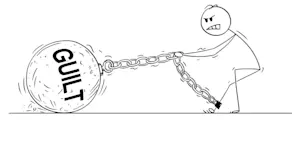What Makes This Word Tick
“Hangry” is a delightful fusion of “hungry” and “angry,” describing the irritability one experiences when they need food. It’s a blend that many of us can relate to—when the rumble in your stomach turns up the heat on your mood. Let’s face it; a snack often does wonders for the cranky soul.
If Hangry Were a Person…
They’d likely be rummaging through the fridge at 4 p.m., frantically searching for something to munch on—a granola bar, some carrot sticks, anything! Sporting a slight frown and a stern glance, this person is one good meal away from transforming into a bundle of joy.
How This Word Has Changed Over Time
Though the word itself is a modern concoction, the feeling it represents has been around forever. It officially entered the Oxford English Dictionary in 2018, validating what we've all known—that hunger can indeed spoil our mood.
Old Sayings and Proverbs That Use Hangry
While traditional proverbs might not list “hangry” directly, the sentiment can certainly be found in old adages like “An empty belly hears nobody.” A full stomach has long been seen as a key to happiness and tranquility.
Surprising Facts About Hangry
Did you know “hangry” has scientific backing? Studies show that low glucose levels can impact emotional regulation and contribute to crankiness. So, it’s not just a funny word—it’s science! Also, “hangry” was one of Collins Dictionary’s words of the year in 2015.
Out and About With This Word
From restaurants encouraging brunch over breakfast to snack bar companies leveraging the hangry experience in ads, this word has made its mark in the food industry. It's a fun, cheeky way to express a common plight, relatable in various settings from picnics to business meetings.
Pop Culture Moments Where Hangry Was Used
On social media, memes featuring the hangry reaction are aplenty. Notably, the Snickers commercials encapsulate the essence of hangry by showcasing irritable people who transform into their calm selves post-snack.
The Word in Literature
“Hangry” is typically absent from classic literature but pops up in modern works, especially those touching on lifestyle and wellness. Its usage signifies a casual, relatable tone, more likely found in blog posts or magazine articles than in the dusty pages of an old tome.
Moments in History with Hangry
Think of moments like the French Revolution or even the infamous 'let them eat cake' scenario—it’s easy to imagine the peasantry, upset by lack of bread, as having been downright hangry. Although not used directly, the sentiment lurks in many historical movements driven by scarcity.
This Word Around the World
In Japan, you might hear “iku iku,” which captures the same essence as hangry—irritability from hunger. Many cultures have their own versions of this sensation, addressing the universal fact that a hungry person can become quite cross.
Where Does It Come From?
“Hangry” hails from the English-speaking world, a clever compound word that gained media traction in the 21st century. It's a word that marries daily experiences with humor, highlighting the linguistic creativity of modern vernacular.
How People Misuse This Word
People occasionally toss “hangry” around when merely feeling peckish. True hangriness, as per the original spirit, involves a notable shift in mood—like snapping at a loved one because the soup’s boiling over.
Words It’s Often Confused With
Hungry: Just the physical need for food, without the emotional flair.
Grumpy: A general state of irritation not specifically tied to food.
Cranky: Another term for irritability, regardless of hunger.
Additional Synonyms and Antonyms
Synonyms for hangry might include peevish or snappish (when hungry), while antonyms would focus on feelings like content or appeased, particularly after a meal.
Want to Try It Out in a Sentence?
"When Paul skipped breakfast and faced a morning full of meetings, he quickly realized that his hangry alter-ego was at risk of making an appearance!"
















